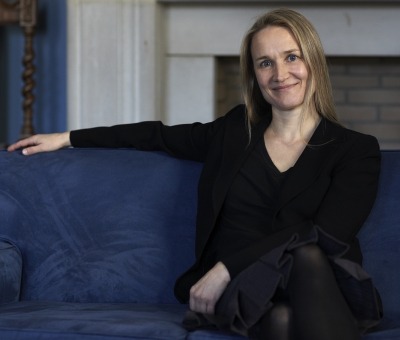
You won’t find the three-house fishing community Mari Ruti was raised in marked on any map of Finland – it doesn’t have a name – but toss a dart somewhere near the Russian border and you’d be close. With her origins rooted in multidimensional poverty, the trajectory that took Ruti, a psychoanalytic critic, to the ivied walls of Harvard and into the office of Julia Kristeva would inspire in anyone questions of destiny, singularity, and the self-fashioning that her books obsess over.
Mari Ruti entered the American Academy in the 1990s, during the heyday of post-structuralism, when it was neither desirable nor possible to speak seriously about the distinctiveness of the individual spirit, let alone “the soul.” Against the gales of that theoretical climate, she has dedicated the last decade of thought to imagining a world in which loss is reinscribed as potential, one’s destiny can always be rewritten, and the fragmentary and fragile nature of existence is embraced as a bright motif in the art of living.
She is Associate Professor of Critical Theory at the University of Toronto and the author of Reinventing The Soul (2006), A World of Fragile Things (2009), and The Summons of Love (2011). Her latest book, The Singularity of Being: Lacan and the Immortal Within (2012) argues for the distinctiveness of human subjectivity against the normalizing forces of society, and suggests that our singularity connects us to the immortal.
– William Fitzpatrick
BELIEVER: The Greek word for ‘soul,’ psyche, places the concept at the heart of psychoanalysis. Yet the usage of it in your first book, Reinventing The Soul, seems charged with rebellion. Was it as uncommon then as it is now for Western critics to deal seriously with the soul?
MARI RUTI: I think that the ideas in that book are not that rebellious now but they were when I started writing them in the late 1990s. I think the field has actually moved closer to where that book is now. But ten or fifteen years ago it wasn’t there yet.
When I first approached Barbara Johnson, who was my dissertation advisor at Harvard, with my topic, she tried to discourage me from doing it, which was sound advice. She was trying to look out for me. She knew that I would be going uphill and banging my head against the establishment. But I’ve always had a rebellious streak and I went for it anyway.
I can tell you the personal reason for that. I come from what I would call a place of abjection. A very difficult childhood. You could call it a lot of things: a...
You have reached your article limit
Sign up for a digital subscription and continue reading all new issues, plus our entire archives, for just $1.50/month.
Already a subscriber? Sign in




